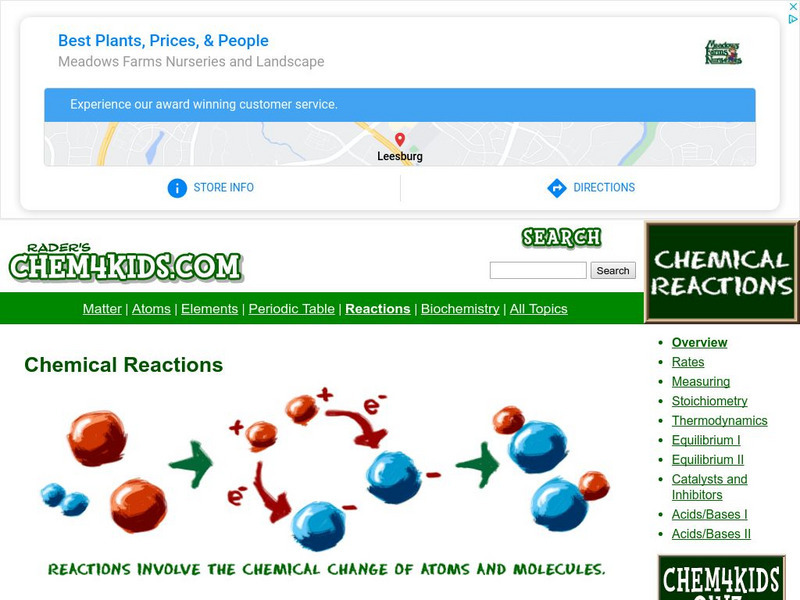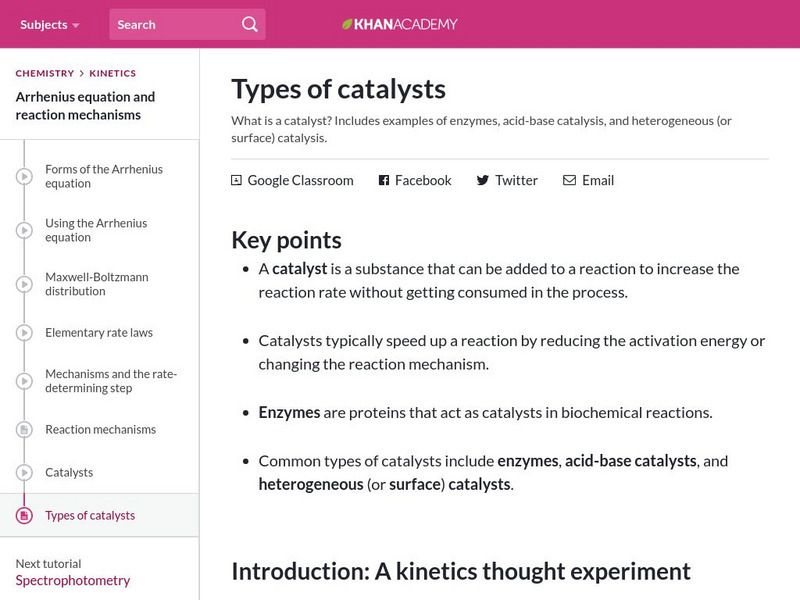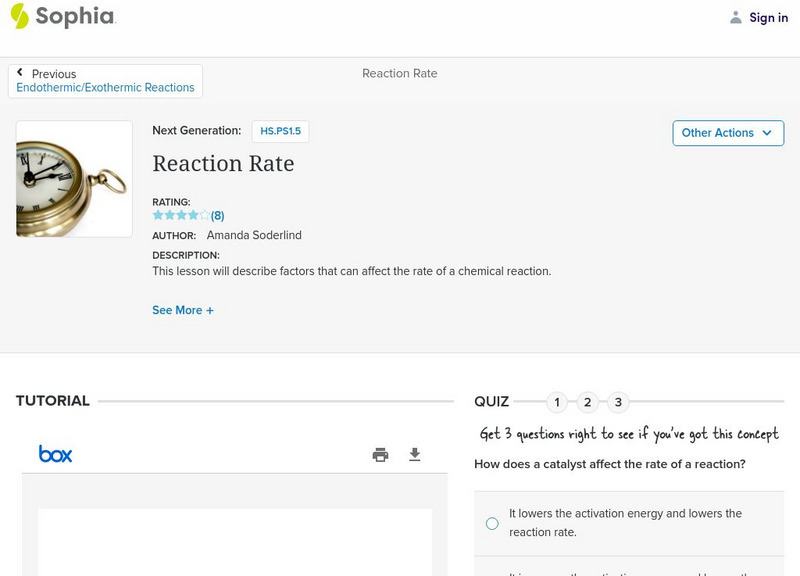Hi, what do you want to do?
Curated OER
Temperature and Enzymes
Young scholars compare the times it takes the milk in each of two cups to curdle. They are told that an enzyme that is added to the milk, rennin, is involved in the natural curdling process of milk. Students are asked to consider what...
Curated OER
Writing Complete Equations Worksheet
For this chemistry worksheet, students write in the correct equations in accordance to solving the word problems. The answers are on page 2.
Curated OER
Biodiesel Combustion and Its Influences in NOx Emissions
Tenth graders evaluate the physical mechanisms that cause a change in NOx emissions. In this combustion lesson, 10th graders participate in a research project. Students create a presentation of their findings.
Curated OER
Solar Lesson
First graders complete sunlight and solar effects activities to learn about light and its power. In this solar activity instructional activity, 1st graders complete a sunscreen test activity, a light test, a black light test, a cloudy...
Curated OER
What's on Your Plate?
Students demonstrate the path of food in the body. In this biology lesson, students conduct an experiment to determine how large the the digestive system is. They name the different organs involved in the digestive process.
Curated OER
Insect Classification
Students compare and contrast the visible structures of three insects based on photographs. They differentiate characteristics of crane flies, ants, and wasps then create a simple classification system.
Curated OER
To Smell or Not to Smell, That is the Ester
Students explain the basic concepts of polymerization. Students participate in a lab to create a crude preparation of carboxyl esterase and test its effectiveness in reducing the residual monomer in an emulsion such as paint.
Curated OER
Polymerization Experiments
High schoolers explain the process of polymerization. In this chemistry lesson plan, students produce carboxylesterase in the lab. They test its effectiveness in removing the by-product odor.
Curated OER
Learning Activities: What Color Am I?
Students identify various species of anurans by their skin coloration. They describe how coloration contributes to survival.
TED Talks
Ted: Ted Ed: Activation Energy Kickstarting Chemical Reactions
Chemical reactions are constantly happening in your body - even at this very moment. But what catalyzes these important reactions? Vance Kite explains how enzymes assist the process, while providing a light-hearted way to remember how...
OpenStax
Open Stax: Chemical Reactions
This site provides an overview of the role of energy in chemical reactions.
TED Talks
Ted: Ted Ed: How to Speed Up Chemical Reactions (And Get a Date)
This video explores by analogy what factors speed up reaction rates in chemical reactions. [4:56] Includes a brief quiz and a list of additional resources to explore.
American Chemical Society
Middle School Chemistry: Lesson Plans: A Catalyst and the Rate of Reaction
Students observe and investigate how a catalyst increases the rate of a chemical reaction while not becoming part of the products of the reaction.
Ducksters
Ducksters: Chemistry for Kids: Chemical Reactions
A site discussing chemical reactions in chemistry including reaction rate, types of reactions, reagents, reactants, catalysts, and inhibitors.
American Chemical Society
Middle School Chemistry: Chapter 6: Chemical Change
Twelve interactive chemistry lessons about chemical changes complete with handouts and animations.
CK-12 Foundation
Ck 12: Reaction Mechanisms
[Free Registration/Login may be required to access all resource tools.] Students describe how the elementary steps of a chemical reaction combine to produce the overall reaction mechanism, and identify intermediates and catalysts when...
Chem4kids
Chem4 Kids: Reactions
This site provides a detailed overview of chemical reactions. Content explores what a reaction is, as well as different types of reactions, reaction rates, how to measure compounds to create a reaction, and "stuff" you can add to a...
Khan Academy
Khan Academy: Types of Catalysts
What is a catalyst? This Khan Academy resource includes examples of enzymes, acid-base catalysis, and heterogeneous (or surface) catalysis.
CK-12 Foundation
Ck 12: Physical Science: Enzymes as Catalysts
[Free Registration/Login may be required to access all resource tools.] Explores how enzymes work and their role in chemical reactions in living cells.
Concord Consortium
Concord Consortium: Stem Resources: Catalysts
Want to see how a catalysts help a reaction happen? In this science simulation, students can experience a reaction that has gone forward due to a catalyst.
ClassFlow
Class Flow: Chemical Kinetics and Alkane Nomenclature
[Free Registration/Login Required] This flipchart covers essential concepts of factors that affect a chemical reaction and nomenclature of Alkenes.
Concord Consortium
The Concord Consortium: Molecular Workbench: Catalyzed Reactions
Explore the purpose of catalysts in chemical reactions and how they affect the reaction pathways.
Sophia Learning
Sophia: Reaction Rate
This lesson will describe factors that can affect the rate of a chemical reaction.
ClassFlow
Class Flow: Rates of Change
[Free Registration/Login Required] This is part 4 of a 4 part series to include the nature of chemical reactions, reaction types, and balancing chemical equations.



























